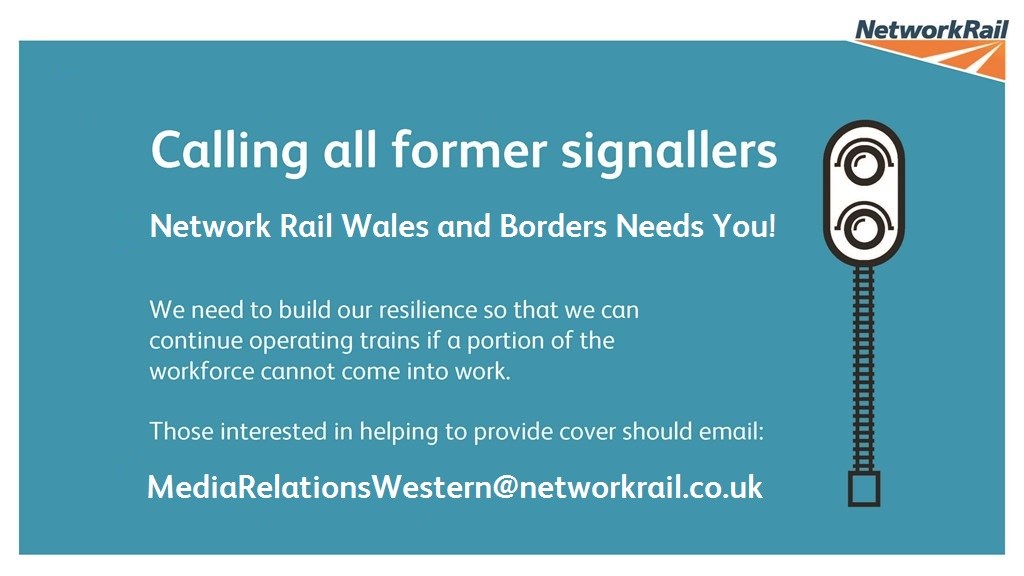Tuesday 7 Apr 2020
Network Rail calls on former signallers in the Wales and Borders area to help keep vital train services moving
- Region & Route:
- Wales & Western: Wales & Borders
Network Rail is calling on former or retired signallers in the Wales and Border route area to help keep the railway moving during the current coronavirus event.
Network Rail continues to work around the clock, keeping signal boxes and control centres operational. This allows passengers who cannot work from home to get to their places of work and keeps freight services on the move, which helps deliver important goods, such as medical supplies and food to hospitals and supermarkets.
For those thinking of returning to the railway as signallers, there is no limit on how long ago they may have worked in that role, even if it was 10-15 years, as the appropriate accelerated refresher training will be provided. Network Rail is also interested to hear from former signallers who have worked on preserved railways, in addition to those former railway colleagues who do not have direct signaller experience, but feel they have a skill set and experience that could be useful in the current climate.
Bill Kelly, route director for Network Rail, Wales and Borders, said:
“Keeping our passengers, customers and colleagues safe and the efficient running of the railway are key aspects to Network Rail at all times and this has never been more true than now.
“Network Rail, throughout this pandemic, has maintained a safe and reliable network across the Wales and Borders route, and indeed across the whole country, and we plan to continue to do so, which is why we are planning for all scenarios.
“Having a strong team of signallers to cover signal boxes and panels on the Wales and Borders route is essential for the whole of Britain. It keeps trains moving so that fuel reaches our powers stations, goods reaches our shops and supermarkets, military equipment is relocated for strategic needs, such as helping to build the London Nightingale Hospital and, crucially, key workers are able to get to work and petrol reaches the pumps.”
In the first instance, those who would like to express and interest are kindly asked to email MediaRelationsWestern@NetworkRail.co.uk, briefly outlining their experience.
Contact information
Passengers / community members
Network Rail national helpline
03457 11 41 41
Latest travel advice
Please visit National Rail Enquiries
Journalists
Steven Crane-Jenkins
Media Relations Manager
Network Rail (Wales and Borders)
07732 643228
Steven.Crane-Jenkins@NetworkRail.co.uk
About Network Rail
We own, operate and develop Britain's railway infrastructure; that's 20,000 miles of track, 30,000 bridges, tunnels and viaducts and the thousands of signals, level crossings and stations. We run 20 of the UK's largest stations while all the others, over 2,500, are run by the country's train operating companies.
Usually, there are almost five million journeys made in the UK and over 600 freight trains run on the network. People depend on Britain's railway for their daily commute, to visit friends and loved ones and to get them home safe every day. Our role is to deliver a safe and reliable railway, so we carefully manage and deliver thousands of projects every year that form part of the multi-billion pound Railway Upgrade Plan, to grow and expand the nation's railway network to respond to the tremendous growth and demand the railway has experienced - a doubling of passenger journeys over the past 20 years.
Follow us on Twitter: @networkrail
Visit our online newsroom: www.networkrailmediacentre.co.uk

